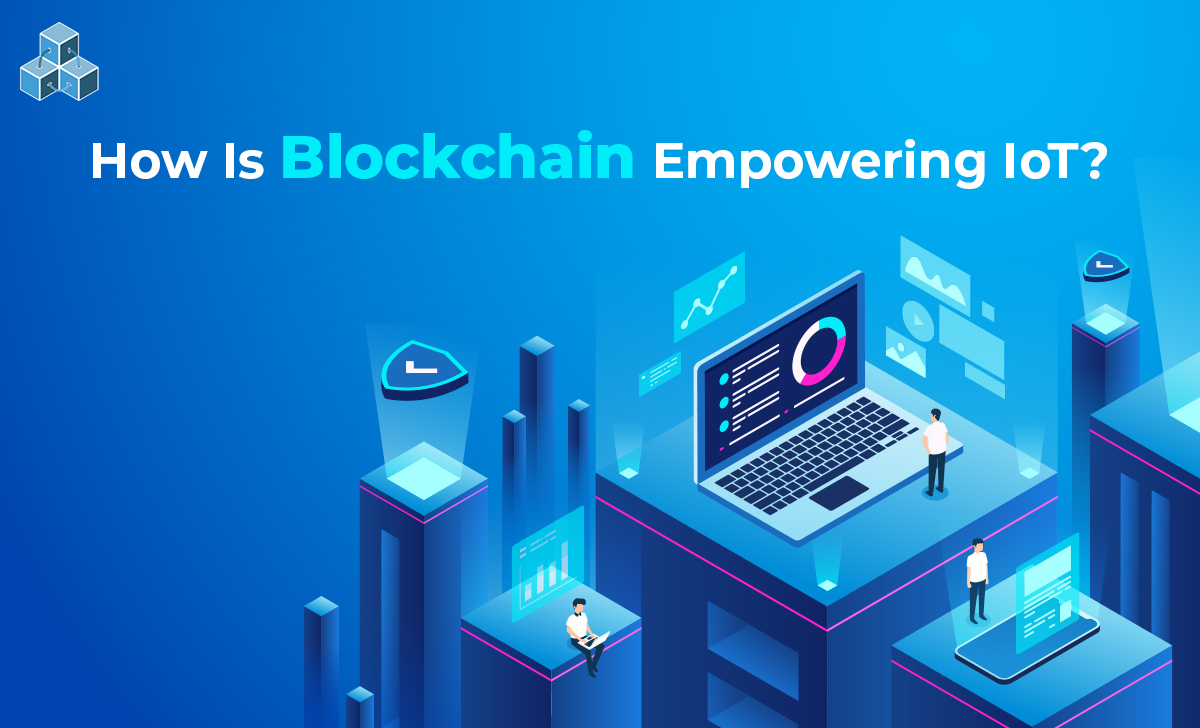The two transformative technologies, Blockchain and IoT (Internet Of Things), harbor the possibility to transform industries and change the way devices and data interact in the digital age. Blockchain is a form of Distributed Ledger Technology and is gaining tremendous attention in various industries. Both Blockchain and IoT are essential digital transformation technologies. But what happens when both these technologies combine?
In this blog, we will explore how Blockchain has the ability to empower IoT and unleash a new era for connected devices and the impact it brings to various sectors. Transform the way devices and systems communicate, transact and share data.
Introduction to IoT
IoT (Internet of Things) refers to a network of interconnected devices, appliances and other objects ingrained with sensors, software and network connectivity. The device collects and exchanges data, enabling them to interact with each other and their ecosystem.
IoT widgets with sensors can monitor and collect data such as temperature, humidity, location, & more. The data then is transmitted to other devices or a central system where it can be analyzed, processed and used for decision-making. IoT can receive instructions or commands and perform specific actions based on received data.
The benefits of IoT are extensive. IoT helps improve efficiency, productivity and convenience by automating tasks and enabling maintenance. IoT enables data-driven decisions by providing real-time insights.
The widespread use of IoT also offers some challenges in the path. These include the security and privacy of data transmitted by devices and managing generated data.
However, even after these challenges, IoT continues to expand and evolve. As technology advances and connectivity becomes universal, IoT holds the potential to transform industries and create immense new opportunities.
Key Features of IoT with Blockchain
The Internet of Things consists of a range of devices and technologies. While some features vary on the context and application, various features are common to IoT:
- Connectivity:- IoT devices allow sending and receiving data via the internet. It enables devices to communicate with each other, systems and applications.
- Data Collection:- IoT devices equipped with sensors help collect data such as temperature, humidity, motion, location, and more. The sensors enable them to monitor physical phenomena and the environment.
- Data Processing and Analytics:- IoT devices hold the potential to process data and send it to a centralized system for analysis. Data analytics help drive insight, detect patterns and decisions based on collected data.
- Automation and Control:- Devices programmed for automatic response to certain conditions. This capability helps in remote control and optimization of devices and systems.
- Interoperability:- IoT devices with interoperability can exchange data and collaborate effectively. It helps to communicate and work seamlessly with each other.
- Real-time Communication:- Real-time communication to enable quick responses and actions. It is essential for remote monitoring, emergency response and critical infrastructure management.
- Security and Privacy:- Ensuring security and privacy in IoT is essential as it involves exchanging sensitive data. It includes encryption, authentication and data protection methods to safeguard data and prevent unauthorized access.
Enabling Peer-to-Peer Transactions and Smart Contracts
Peer-to-peer transactions and smart contracts in IoT through blockchain can transform how devices interact and transact with one another. Blockchain’s decentralized and trustless architecture in IoT devices can help create a safe, secure & autonomous ecosystem.
IoT devices can engage in direct peer-to-peer without any intermediate. The cryptographic identity and authentication method ensure secure and established communication between devices. The unique cryptographic identity record helps establish trust and enables secure transactions.
Smart contract development helps automate and enforce transactions on IoT. These self-executing contracts define rules and conditions for transactions.
Enabling peer-to-peer transactions and smart contracts in IoT creates a decentralized and secure ecosystem. Paving the way for a more efficient, transparent and scalable ecosystem with trust and reduced intermediates.
Conclusion
Blockchain with IoT has the potential to transform and reshape industries and drive innovation. Address security, data integrity, trust and interoperability changes; blockchain empowers IoT to operate in a decentralized, secure and transparent method, from enhancing security to optimizing supply chain management and healthcare. Blockchain and IoT hold the potential to connect efficiently and effectively for a decentralized future. Embrace the transformative duo to unlock new opportunities and revolutionize how we interact with digital technology in the coming years.
Blockcoders is a blockchain development company working to revolutionize industries with unique ideas. Connect with us to discuss your project requirements.
 info@blockcoders.pro
info@blockcoders.pro
 Our global presence :
Our global presence :
 |
|
 |
|
 |
|


